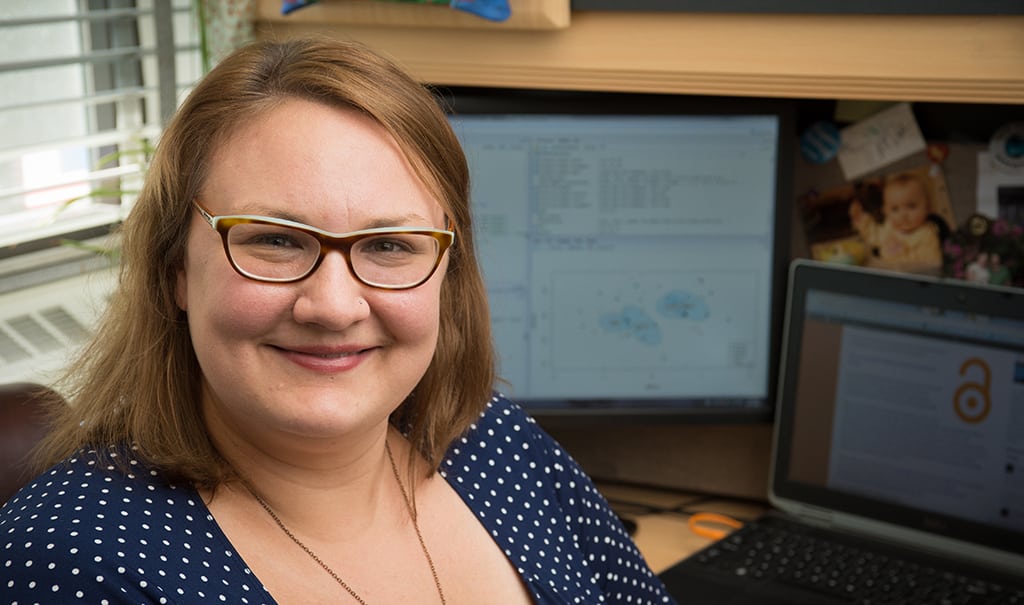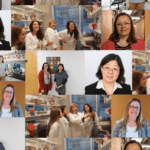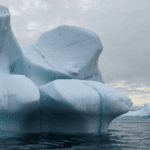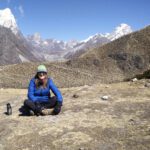Christie Bahlai has been interested in science since she was a child – though she didn’t see it that way at the time. “My parents were both high school chemistry teachers,” she explains. “But I just liked catching bugs and frogs to be my pets, and working with my grandparents in their garden. I grew crystals for my third grade science fair project, and in 5th and 6th grades I went to regional science fairs with computer science projects I did using the LOGO programming language.” She’d imagined being a computer programmer when she grew up, but as she began to realize the social consequences of being a girl interested in science, she gave up on some of those interests.

Image: Michigan State University
At the age of 13, Richard Preston’s ‘The Hot Zone’ caught her attention. “This was probably the first time I explicitly considered ‘scientist’ as a career,” Bahlai recalls. “It just captured my imagination. People were devoting their lives to systematically figuring out how to control a major epidemic. Science wasn’t just facts – it was figuring out mysteries, and using what you found to help people.”
That didn’t mean she automatically found her place in science. Bahlai started off as a physics major, but found it too abstract to maintain her interest and keep her motivated. “During my second summer of undergrad, I got a research job in an entomology lab on campus and everything started to click,” she recalls.
She completed all of her degrees at the University of Guelph, starting with a BSc in Physical Sciences in 2004, an MSc in Entomology in 2007, and a PhD in Environmental Biology in 2012. Now Bahlai is a postdoctoral researcher in quantitative population and community ecology at Michigan State University, where she uses a big data approach to agricultural and conservation-based insect management.
Her interest in data management, analysis, and preservation stems from the fact that her research requires broad scale, observational data that’s generated collaboratively, and thus needs some ‘work’ to make it useable. “Working with these types of data, and helping others with analysis, has made me a vocal advocate of open science and reproducible research training for scientists,” she notes. “I want to help foster a more collaborative, more inclusive research environment.”
She attributes her success in finding a postdoc position to both her networking skills and her interest in working with established datasets. “When you approach biologists and ecologists and tell them you’re interested in helping them analyze their data, you get a lot of interest!” she laughs. “Many established labs have datasets that haven’t been analyzed yet, or could use fresh eyes or a new approach.” Her current position is particularly suited to her ‘big-data nerdiness’, as it allows her to tap into the NSF-funded Long Term Ecological Research (LTER) research network, which hosts a jackpot of data.
Bahlai is also a married mother of one, with a second child expected within the next few weeks (!). She’s careful to emphasize, however, that this works mainly because her partner is a stay-at-home-parent who left a career in conservation biology with an NGO. There is some social stigma attached to this gender role reversal, and also requires that the family be very careful with finances, given that they’re supported by a single non-permanent income.
This external picture of multidisciplinary scientific success and work-life balance isn’t all rosy, however.
“I regret not fully embracing science earlier. I let societal pressure push me away from things that I had a lot of interest in when I was in my teens,” muses Bahlai. “I genuinely believed the societal message that it was impossible for women to have kids and be a good scientist, and that traits associated with femininity were largely weaknesses in science. If I’d figured it out sooner, I probably would’ve enjoyed myself a lot more as a teen and as an undergrad.”
Like many female scientists, Bahlai also finds it challenging to build her own confidence and credibility as a scientist. “I find myself walking a thin line of societal expectations. Women are expected to be warm and friendly, but too much of that and you’re not seen as a ‘serious’ scientist,” she says. To address this, Bahlai has capitalized on what she considers her strongest traits: being open to collaboration, and being aggressive at pursuing goals. “I tend to build a lot of collaborations because people find me approachable, and I possess a skillset that many in my field find useful. I also really enjoy mentoring students…I’m particularly happy when I’ve helped a student who thinks she can’t do math or programming complete an analysis independently.”
Even the campus architecture reminds us that the system wasn’t initially built for women: the only ladies’ washroom in Bahlai’s lab building is on another floor, at the far end of a long hallway beside the administration offices. Not overly comfortable when you’re 8.5 months pregnant!
She credits the increasing connectivity of scientists through social media with improving conditions for female scientists. “It’s easy to rationalize things as ‘just the way things are’ when you’re isolated and in a hostile situation,” she says. “But when you’re connected, it empowers you to make meaningful changes.” Bahlai gives as an example an incident at a large American conference last year, where a female colleague was overtly sexually harassed. “With her permission, I tweeted about the incident, and the community rallied around her to condemn the harasser, giving her the support she needed to file a formal complaint.”
Her advice to women interested in science is to surround themselves as much as possible with people who support them, and with good mentors. “Don’t just accept inequity as ‘how it is’,” she admonishes. “This leads to you internalizing a lot of self-doubt and propagating stereotypes.” She also recommends reading the Tenure, She Wrote blog, which shares many women’s voices about their experiences in academia. Like many of our other interviewees, she’s found that exploring different scientific fields on the path to her current position was extremely helpful. Now that she’s on the market for a permanent job, she’s working to convince hiring committees that applied agricultural science and quantitative ecology function complimentarily within a research program!




